
Find Help
More Items From Ergsy search
-

How is Huntington's disease diagnosed?
Relevance: 100%
-
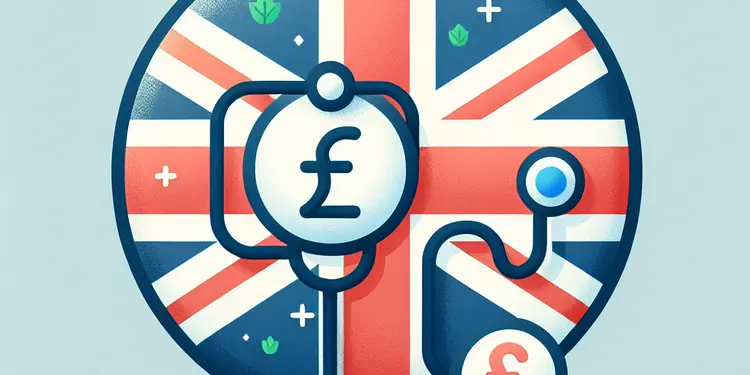
What is Huntington's disease?
Relevance: 97%
-

What research is being done on Huntington's disease?
Relevance: 90%
-

What are the symptoms of Huntington's disease?
Relevance: 90%
-

Is Huntington's disease fatal?
Relevance: 89%
-
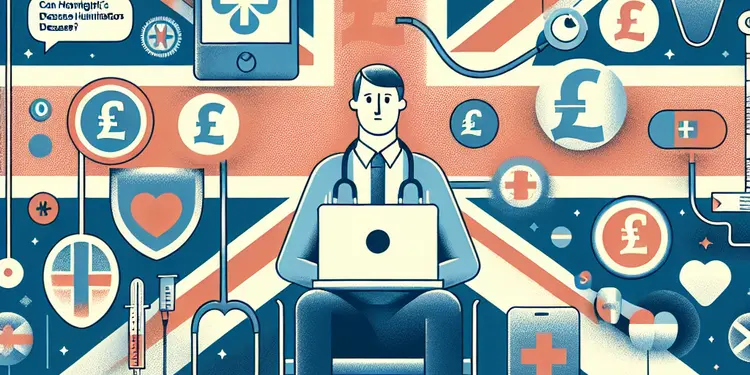
Can Huntington's disease be prevented?
Relevance: 89%
-

Can Huntington's disease be cured?
Relevance: 87%
-

What causes Huntington's disease?
Relevance: 86%
-
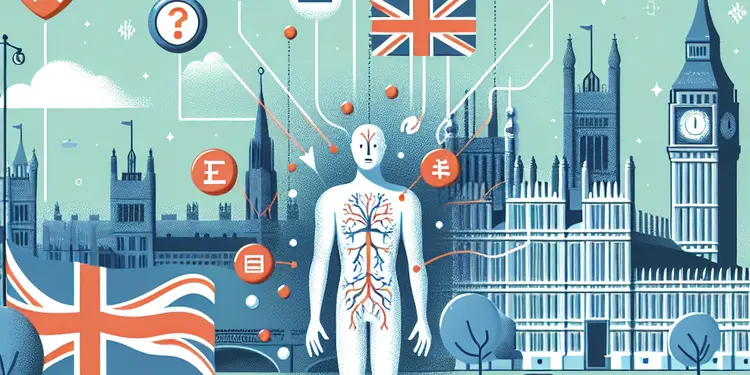
How does Huntington's disease affect emotions?
Relevance: 83%
-

At what age do symptoms of Huntington's disease typically appear?
Relevance: 83%
-
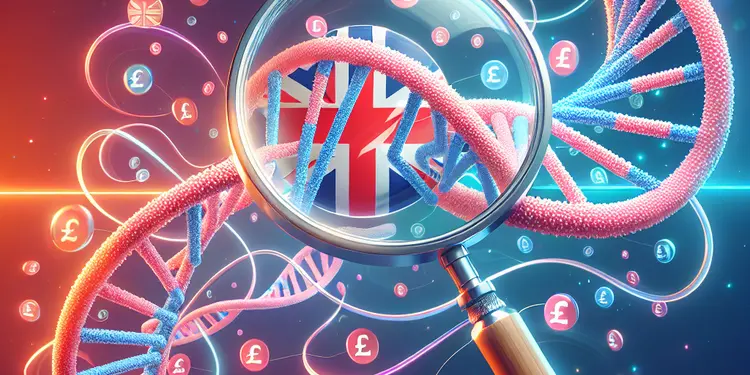
What is the role of genetic testing in Huntington's disease?
Relevance: 83%
-
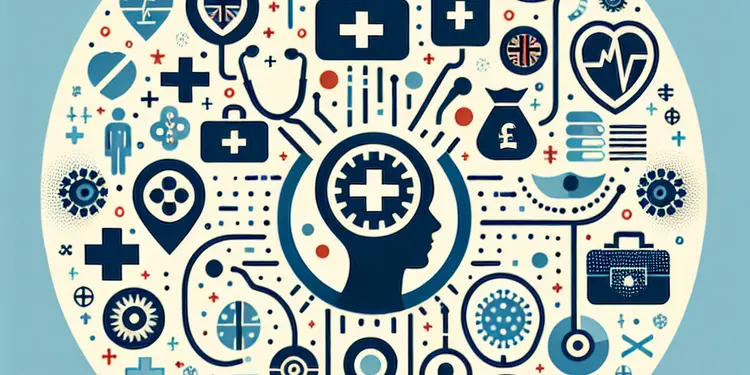
What kinds of specialists are involved in treating Huntington's disease?
Relevance: 81%
-

How does Huntington's disease affect movement?
Relevance: 80%
-
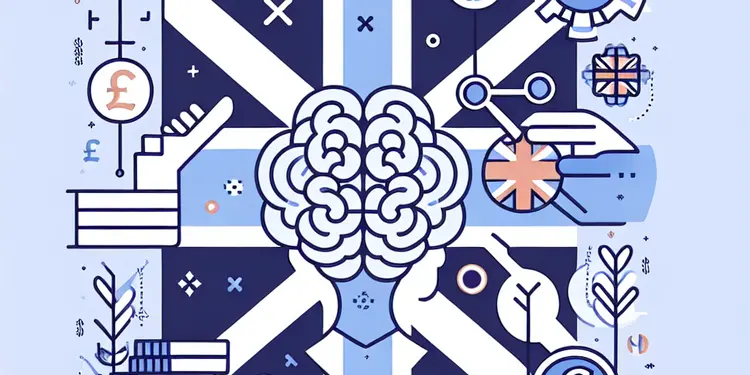
How does Huntington's disease affect cognition?
Relevance: 80%
-

Can lifestyle changes help manage Huntington's disease?
Relevance: 74%
-

What is Juvenile Huntington's disease?
Relevance: 66%
-

How is Huntington's disease inherited?
Relevance: 65%
-

Are there treatments available for Huntington's disease?
Relevance: 62%
-
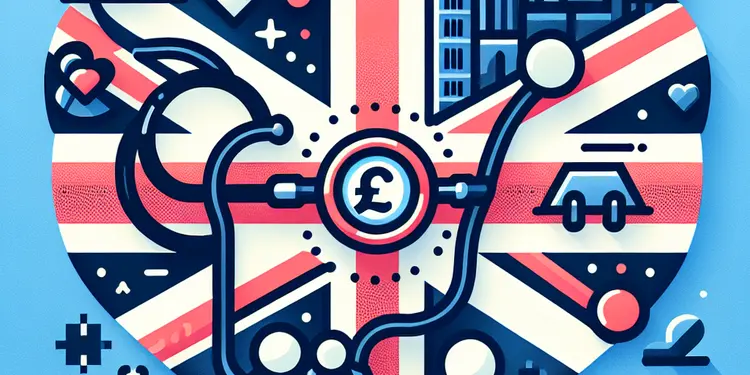
What support is available for families affected by Huntington's disease?
Relevance: 57%
-
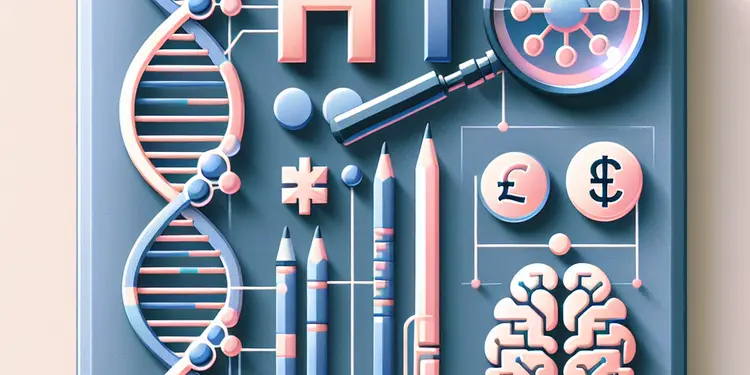
What role does the HTT gene play in Huntington's disease?
Relevance: 54%
-

What is the life expectancy after a motor neurone disease diagnosis?
Relevance: 50%
-

Prostate cancer diagnosis and tests
Relevance: 41%
-
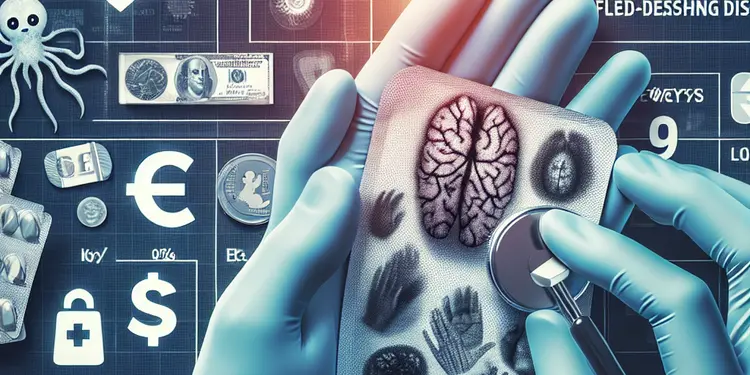
How is flesh-eating disease diagnosed?
Relevance: 39%
-

BSL - Diagnosis of panic disorder
Relevance: 39%
-
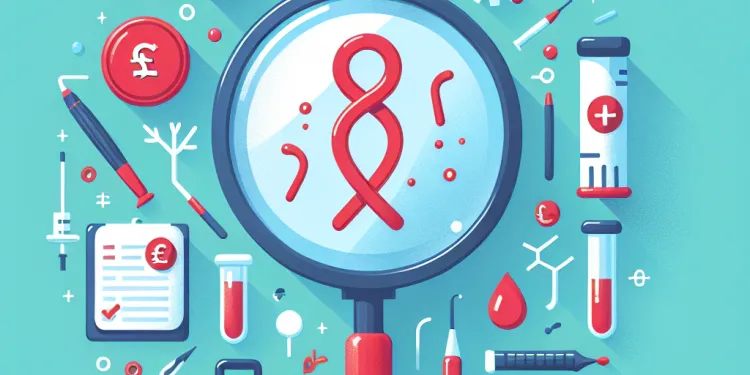
How is sickle cell disease diagnosed?
Relevance: 38%
-
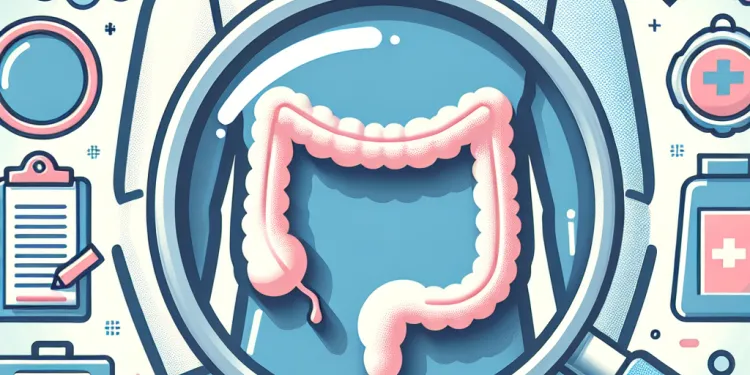
How is Crohn's disease diagnosed?
Relevance: 37%
-

Head and Neck Cancer Diagnosis
Relevance: 37%
-

How is Alzheimer's disease diagnosed?
Relevance: 37%
-
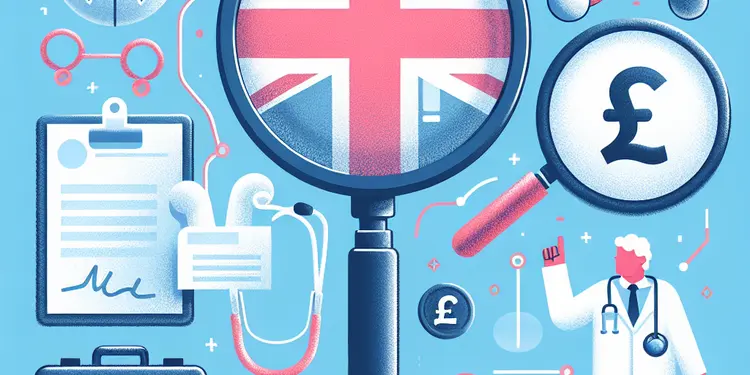
How is motor neurone disease diagnosed?
Relevance: 37%
-

Coeliac disease
Relevance: 37%
-
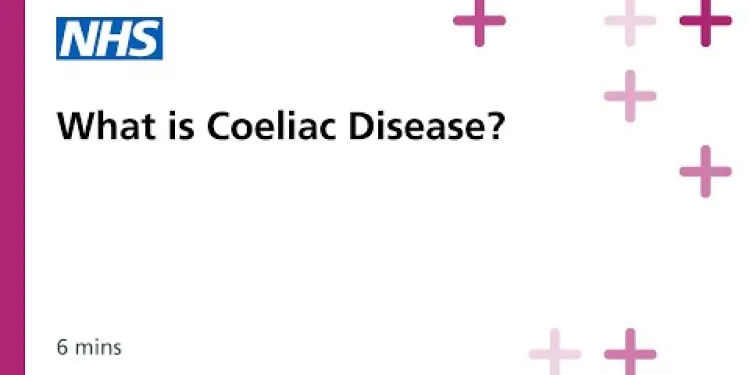
Coeliac Disease: Session 1: What is Coeliac Disease?
Relevance: 37%
-

What tests are available for diagnosing Lyme disease?
Relevance: 36%
-

BSL - Diagnosis of obsessive compulsive disorder (OCD)
Relevance: 36%
-

What is motor neurone disease?
Relevance: 36%
-
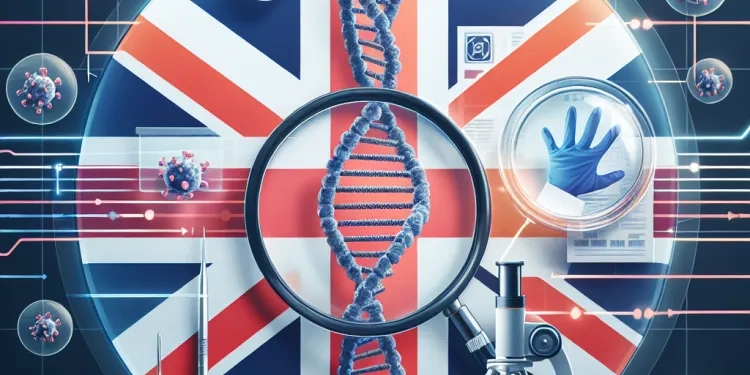
How is Marburg virus disease diagnosed?
Relevance: 36%
-

Are AI systems used alone in lung cancer diagnosis or alongside human radiologists?
Relevance: 36%
-

What is a flesh-eating disease?
Relevance: 35%
-

Lyme disease: What is it?
Relevance: 35%
-

What is Mitochondrial disease?
Relevance: 34%
-

Liver disease | NHS
Relevance: 34%
Understanding Huntington's Disease Diagnosis
Huntington's disease is a genetic disorder that causes the progressive breakdown of nerve cells in the brain. It has a broad impact on a person's functional abilities, resulting in movement, cognitive, and psychiatric disorders. Diagnosing Huntington's disease often involves a combination of neurological and genetic evaluations. Early diagnosis is essential for managing symptoms and planning for the future.
Initial Consultation and Clinical Examination
The diagnostic process typically begins with a thorough medical history review and clinical examination by a neurologist. Patients are asked about their symptoms, family history of Huntington's disease, and other relevant medical conditions. The neurologist assesses motor skills, reflexes, balance, coordination, and mental status. A detailed clinical examination helps identify characteristic physical and cognitive symptoms associated with Huntington's disease.
Genetic Testing
If Huntington's disease is suspected, genetic testing is usually the next step to confirm the diagnosis. This involves a blood test to check for the presence of the abnormal huntingtin gene, which causes the disorder. Genetic testing can identify the number of CAG repeats in the huntingtin gene; a higher number of repeats is positively correlated with Huntington's disease. In the UK, genetic testing is typically offered through specialist NHS services after genetic counseling to discuss the potential risks, benefits, and implications of the test results.
Neuroimaging
While genetic testing is definitive, neuroimaging techniques, such as MRI or CT scans, may also be used to observe changes in the brain's structure that are associated with Huntington's disease. These imaging tests can detect brain atrophy or shrinkage, particularly in specific areas like the caudate nucleus and putamen, providing supportive evidence for the diagnosis. However, neuroimaging alone cannot confirm Huntington's disease but can help assess the extent of brain changes over time.
Psychiatric Assessment
Given the psychiatric manifestations of Huntington's disease, a psychiatric evaluation might be part of the diagnostic process. This assessment can help identify mood disorders, changes in behaviour, or cognitive deficits that frequently occur in Huntington's patients. Comprehensive care often involves psychological support and monitoring over time.
Predictive Testing and Counseling
For individuals with a family history of Huntington's disease but no symptoms, predictive genetic testing is available. In the UK, this is a highly-regulated process involving pre-test genetic counseling. Counselors provide guidance and support, helping individuals understand the potential impact of test results on their lives and families. Testing is usually not recommended for children, as symptoms typically appear in adulthood, and knowing a child's genetic status raises ethical considerations.
Conclusion
Diagnosing Huntington's disease involves a combination of clinical evaluation, genetic testing, neuroimaging, and psychiatric assessment. In the UK, these services are provided through specialist NHS clinics, ensuring comprehensive care for individuals affected by this challenging condition. Early diagnosis facilitates proactive management, supporting individuals and families in planning for the future.
Understanding Huntington's Disease Diagnosis
Huntington's disease is a sickness that affects the brain. It is passed down from parents to children. This disease makes it hard for people to move and think clearly. It can also affect how they feel and behave. To find out if someone has Huntington's disease, doctors do several tests. It is important to know early if someone has this sickness so they can get help and plan for what they need.
First Visit to the Doctor and Tests
The first step is to see a doctor who knows about the brain. This doctor will ask questions about the person's health and family. They want to know if anyone else in the family has the disease. The doctor checks how the person moves, how they balance, and how they think. These tests help the doctor see if someone might have Huntington's disease.
Genetic Testing
If the doctor thinks someone might have Huntington's disease, they will do a genetic test. This test is a blood test that looks for a special gene that causes the disease. People with a lot of this gene are more likely to have the sickness. In the UK, special doctors help people understand the test and what it means for them and their families.
Brain Scans
Sometimes, doctors also do pictures of the brain, like an MRI or CT scan. These pictures can show changes in the brain that might be caused by Huntington's disease. The pictures help doctors see how much the brain has changed. But, by themselves, the pictures cannot tell for sure if someone has the disease.
Mental Health Check
Huntington's disease can also affect how a person feels and behaves. So, a mental health check can be part of the tests. This check helps doctors see if someone has mood or behavior changes. It is important for a person with Huntington's to have mental health support.
Testing for People with Family History
Some people have family members with Huntington's but no symptoms themselves. They can choose to have a genetic test to see if they have the gene. In the UK, this is done carefully with the help of counselors. They help people understand what knowing about the gene means for them and their family. Kids usually do not get tested because the disease does not start until they are older.
Conclusion
To find out if someone has Huntington's disease, doctors do different tests, including looking at genes and doing brain pictures. In the UK, special clinics provide these tests to people who need them. Knowing about the disease early can help people get the right care and plan for the future.
Frequently Asked Questions
What is the primary method for diagnosing Huntington's disease?
The primary method for diagnosing Huntington's disease is genetic testing, specifically a blood test to identify the presence of the expanded CAG repeat in the HTT gene.
Can a neurologist diagnose Huntington's disease?
Yes, a neurologist can diagnose Huntington's disease by assessing the symptoms, conducting a neurological examination, and confirming with genetic testing.
Is there a simple blood test that can diagnose Huntington's disease?
Yes, a simple blood test can diagnose Huntington's disease by checking for the mutation in the HTT gene responsible for the disease.
Can a diagnosis of Huntington's disease be confirmed prenatally?
Yes, prenatal testing for Huntington's disease can be done using techniques such as chorionic villus sampling (CVS) or amniocentesis to detect the genetic mutation.
What role does genetic counseling play in the diagnosis of Huntington's disease?
Genetic counseling provides individuals and families with information about the inheritance pattern, implications of genetic testing, and support in understanding the disease diagnosis process.
Can brain imaging techniques diagnose Huntington's disease?
Brain imaging techniques, such as MRI or CT scans, are not used to diagnose Huntington's disease but can help assess brain structure changes and rule out other conditions.
How is family history important in diagnosing Huntington's disease?
Family history is crucial as Huntington's disease is inherited. A known family history of the disease prompts earlier consideration and testing through genetic means.
Can symptoms alone be used to diagnose Huntington's disease?
While symptoms can suggest Huntington's disease, a definitive diagnosis requires genetic testing to confirm the presence of the HTT gene mutation.
Are there psychological tests used in diagnosing Huntington's disease?
Psychological tests are not used to diagnose Huntington's disease but may help assess cognitive and psychiatric symptoms associated with the condition.
What is the purpose of genetic testing in Huntington's disease diagnosis?
Genetic testing detects the specific mutation in the HTT gene that causes Huntington's disease, providing a definitive diagnosis.
Is predictive testing available for Huntington's disease?
Yes, predictive genetic testing is available for individuals with a family history of Huntington's disease to determine if they have inherited the gene mutation before symptoms appear.
Can a physical examination alone diagnose Huntington's disease?
A physical examination can identify signs suggestive of Huntington's, but a genetic test is necessary to confirm the diagnosis.
What is the role of multidisciplinary assessment in Huntington's disease diagnosis?
A multidisciplinary assessment involves specialists like neurologists, psychologists, and genetic counselors to provide a comprehensive evaluation and support in the diagnostic process.
How early can Huntington's disease be diagnosed?
Huntington's disease can be diagnosed before symptoms start in individuals with a known family history through predictive genetic testing.
Can newborn screening diagnose Huntington's disease?
Newborn screening is not routinely done for Huntington's disease, as it is a late-onset condition and ethical considerations are involved in testing minors.
How accurate is genetic testing for Huntington's disease?
Genetic testing for Huntington's disease is highly accurate if performed correctly, as it directly identifies the genetic mutation responsible for the disease.
Is genetic testing for Huntington's disease covered by insurance?
Coverage for genetic testing can vary based on the health insurance policy, and individuals may need to check with their provider regarding specifics.
What ethical considerations are involved in Huntington's disease diagnosis?
Ethical considerations include informed consent, implications of genetic information on family planning and employment, and the psychological impact of knowing one's genetic status.
Can environmental factors be mistakenly thought to cause Huntington's disease symptoms, leading to misdiagnosis?
Environmental factors do not cause Huntington's disease but can exacerbate symptoms. Accurate diagnosis relies on genetic confirmation rather than symptom observation alone.
What are the potential psychological impacts of a Huntington's disease diagnosis?
A diagnosis can lead to various psychological impacts including anxiety, depression, and stress about the future, warranting psychological support for affected individuals and families.
How do doctors find out if someone has Huntington's disease?
The main way to find out if someone has Huntington's disease is by a special blood test. This test checks for changes in a tiny part of a person's genes called the CAG repeat in the HTT gene.
Can a brain doctor find out if someone has Huntington's disease?
Yes, a brain doctor called a neurologist can find out if someone has Huntington's disease. They do this by looking at signs in the body, checking how the brain works, and doing special tests to look at genes.
Can a blood test show if you have Huntington's disease?
Yes, a simple blood test can tell if someone has Huntington's disease. The test looks for a change, called a mutation, in the HTT gene that causes the disease.
Can doctors tell if a baby will have Huntington's disease before birth?
Yes, doctors can check if a baby will have Huntington's disease before it is born. They use special tests like chorionic villus sampling (CVS) or amniocentesis to look at the baby's genes.
How does talking to a genetics expert help with finding out about Huntington's disease?
Talking to a genetics expert can help you understand Huntington's disease better. They can look at your family's health history. They can also explain how the disease might affect you. This can help you know what to expect and make good health choices.
Here are some tools and tips that might help:
- Use pictures and simple words to understand information.
- Ask the expert to write things down for you to take home.
- Bring a friend or family member to help you remember what you learn.
Genetic counseling helps people and families learn about how genes are passed down, what gene tests mean, and helps them understand how doctors find out about diseases.
Can brain scans find Huntington's disease?
Brain scans are pictures that show us what the brain looks like.
Huntington's disease is a sickness that affects the brain. It makes it hard for people to control their bodies.
Doctors sometimes use brain scans to help them see changes in the brain that might be caused by Huntington's disease.
If you or someone you know might have Huntington's disease, talk to a doctor.
They can tell you if a brain scan is a good idea. They will help you understand what the scan shows.
Using pictures and breaking information into small parts can help understand better.
Doctors use machines like MRI or CT scans to look at the brain. These tests cannot show if you have Huntington's disease, but they can help doctors see changes in the brain and check if something else is wrong.
Why is it important to know about your family's health when checking for Huntington's disease?
Family history is very important because Huntington's disease is passed down from parents to children. If someone in your family has the disease, doctors might look at this earlier and do special tests.
Can doctors tell if you have Huntington's disease just by looking at symptoms?
To find out if someone has Huntington's disease for sure, doctors need to test their genes. They look for a change in the HTT gene. If the change is there, it means the person has the disease.
Do doctors use brain tests to find out if someone has Huntington's disease?
Doctors can use special tests to check how the brain is working. These tests can help them know if a person has Huntington's disease. Huntington's disease affects how the brain works and can change a person's movements, thoughts, and feelings.
Some tests might include asking questions, solving puzzles, or moving in certain ways. These tests are like games or quizzes to see how the brain is doing.
If you're worried or have questions, you can ask a doctor or a health expert for help. It's okay to ask for support.
Using pictures, videos, or apps might make it easier to understand the tests. You can also have someone read the information with you if you find it hard to read alone.
Doctors do not use mind tests to say if someone has Huntington's disease. But, these tests can help see how the disease affects thinking and mood.
Why do we use genetic tests to find out if someone has Huntington's disease?
Genetic tests check the HTT gene. This can show if a person has Huntington's disease. It gives a clear answer.
Can you get tested for Huntington's disease before you have symptoms?
Yes, there is a test that can help people who have family members with Huntington's disease. This test can tell if someone has the gene for the disease before they start feeling sick.
Can a physical exam show if someone has Huntington's disease?
A doctor looks at your body in a physical exam. This alone cannot tell if you have Huntington's disease.
To find out for sure, doctors do other tests. One important test is a genetic test. This test looks at your DNA.
If you or someone you know needs help with reading, try using audiobooks or text-to-speech tools. These can read the words out loud for you.
A doctor can check your body to see signs of Huntington's. But to know for sure, you need a special test called a genetic test.
How does a team of different doctors help find out if someone has Huntington's disease?
When checking for Huntington's disease, different doctors and helpers work together. Each person on the team looks at different parts of your health to see if you have Huntington's disease.
- One doctor might talk to you about family health history.
- Another doctor might check how your body moves.
- A helper might talk to you about your feelings and thoughts.
They work together to make sure they have the right answer. Using tools like picture cards and video explanations can help you understand better.
A multidisciplinary assessment means different health experts work together. These experts include brain doctors, mind doctors, and people who help with family history. They all come together to understand and help with a diagnosis.
If you're having trouble understanding, you can ask a family member or friend to help read with you. Using tools like audiobooks or reading apps can also make it easier to understand the information.
When can doctors tell if someone has Huntington's disease?
Doctors can find out if someone will get Huntington's disease before they feel sick. They can do a special test if a person's family has had the disease.
Can we find out if a new baby has Huntington's disease?
Doctors do not usually test newborn babies for Huntington's disease. This is because the disease starts much later in life. Also, it is important to think carefully about testing children for something that happens when they are older.
How well does genetic testing work for Huntington's disease?
Genetic tests for Huntington’s disease are very good at finding the problem if done right. The test looks for changes in the genes that cause the disease.
Does insurance pay for a test to check for Huntington's disease?
Huntington's disease is a condition that can be passed down from parents to children. There is a special test to see if someone might get this disease.
If you want to have this test, you might wonder if your insurance will help pay for it. It’s a good idea to:
- Ask your doctor about the test.
- Call your insurance company and ask about coverage for the test.
- Get help from a friend or family member if you need support.
If it is hard to talk on the phone, you can:
- Write down questions before you call.
- Ask someone to call for you.
Different health insurance plans cover genetic testing in different ways. It's a good idea for people to ask their insurance company to find out the details.
What moral questions come up when finding out if someone has Huntington's disease?
When we talk about ethics, we mean doing the right thing. Here are some important things to think about:
- People need to say "yes" before we use their genetic information. This is called informed consent. It's very important.
- Knowing your genes can change big decisions. It can affect if you want to have kids or what jobs you do.
- Finding out about your genes can make you feel different feelings. It might make you feel worried or happy. It's important to talk to someone who can help, like a counselor.
Can things around us be confused with causing signs of Huntington's disease, making doctors get it wrong?
Huntington's disease is not caused by things outside. But, some things can make it feel worse. To know if someone has this disease for sure, doctors need to look at their genes, not just the symptoms they show.
How can finding out you have Huntington's disease affect your feelings and mind?
When someone learns about a health problem they have, it can make them feel worried, sad, or stressed about what will happen next. It's important for these people and their families to get help from someone who understands how they feel.
Useful Links
This website offers general information and is not a substitute for professional advice.
Always seek guidance from qualified professionals.
If you have any medical concerns or need urgent help, contact a healthcare professional or emergency services immediately.
Some of this content was generated with AI assistance. We’ve done our best to keep it accurate, helpful, and human-friendly.
- Ergsy carfully checks the information in the videos we provide here.
- Videos shown by Youtube after a video has completed, have NOT been reviewed by ERGSY.
- To view, click the arrow in centre of video.
- Most of the videos you find here will have subtitles and/or closed captions available.
- You may need to turn these on, and choose your preferred language.
- Go to the video you'd like to watch.
- If closed captions (CC) are available, settings will be visible on the bottom right of the video player.
- To turn on Captions, click settings .
- To turn off Captions, click settings again.
More Items From Ergsy search
-

How is Huntington's disease diagnosed?
Relevance: 100%
-

What is Huntington's disease?
Relevance: 97%
-

What research is being done on Huntington's disease?
Relevance: 90%
-

What are the symptoms of Huntington's disease?
Relevance: 90%
-

Is Huntington's disease fatal?
Relevance: 89%
-

Can Huntington's disease be prevented?
Relevance: 89%
-

Can Huntington's disease be cured?
Relevance: 87%
-

What causes Huntington's disease?
Relevance: 86%
-

How does Huntington's disease affect emotions?
Relevance: 83%
-

At what age do symptoms of Huntington's disease typically appear?
Relevance: 83%
-

What is the role of genetic testing in Huntington's disease?
Relevance: 83%
-

What kinds of specialists are involved in treating Huntington's disease?
Relevance: 81%
-

How does Huntington's disease affect movement?
Relevance: 80%
-

How does Huntington's disease affect cognition?
Relevance: 80%
-

Can lifestyle changes help manage Huntington's disease?
Relevance: 74%
-

What is Juvenile Huntington's disease?
Relevance: 66%
-

How is Huntington's disease inherited?
Relevance: 65%
-

Are there treatments available for Huntington's disease?
Relevance: 62%
-

What support is available for families affected by Huntington's disease?
Relevance: 57%
-

What role does the HTT gene play in Huntington's disease?
Relevance: 54%
-

What is the life expectancy after a motor neurone disease diagnosis?
Relevance: 50%
-

Prostate cancer diagnosis and tests
Relevance: 41%
-

How is flesh-eating disease diagnosed?
Relevance: 39%
-

BSL - Diagnosis of panic disorder
Relevance: 39%
-

How is sickle cell disease diagnosed?
Relevance: 38%
-

How is Crohn's disease diagnosed?
Relevance: 37%
-

Head and Neck Cancer Diagnosis
Relevance: 37%
-

How is Alzheimer's disease diagnosed?
Relevance: 37%
-

How is motor neurone disease diagnosed?
Relevance: 37%
-

Coeliac disease
Relevance: 37%
-

Coeliac Disease: Session 1: What is Coeliac Disease?
Relevance: 37%
-

What tests are available for diagnosing Lyme disease?
Relevance: 36%
-

BSL - Diagnosis of obsessive compulsive disorder (OCD)
Relevance: 36%
-

What is motor neurone disease?
Relevance: 36%
-

How is Marburg virus disease diagnosed?
Relevance: 36%
-

Are AI systems used alone in lung cancer diagnosis or alongside human radiologists?
Relevance: 36%
-

What is a flesh-eating disease?
Relevance: 35%
-

Lyme disease: What is it?
Relevance: 35%
-

What is Mitochondrial disease?
Relevance: 34%
-

Liver disease | NHS
Relevance: 34%


